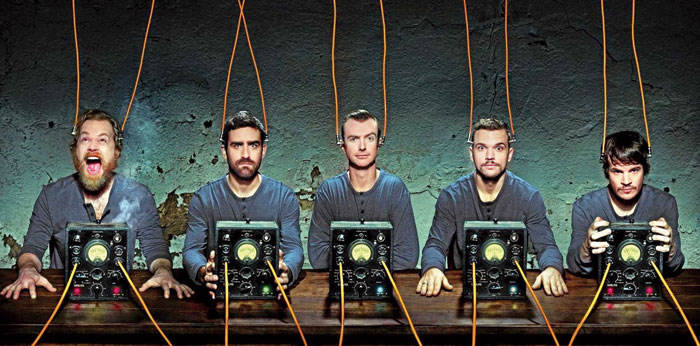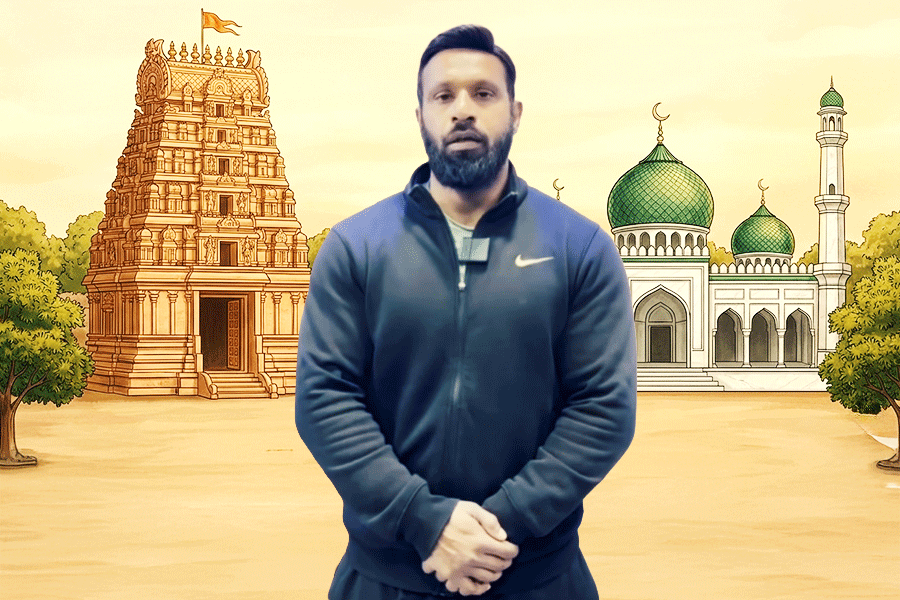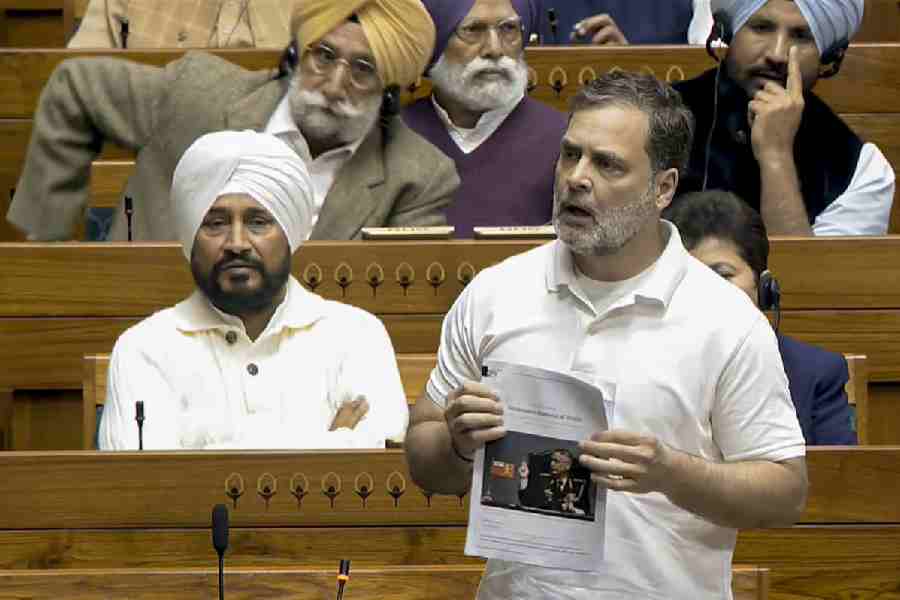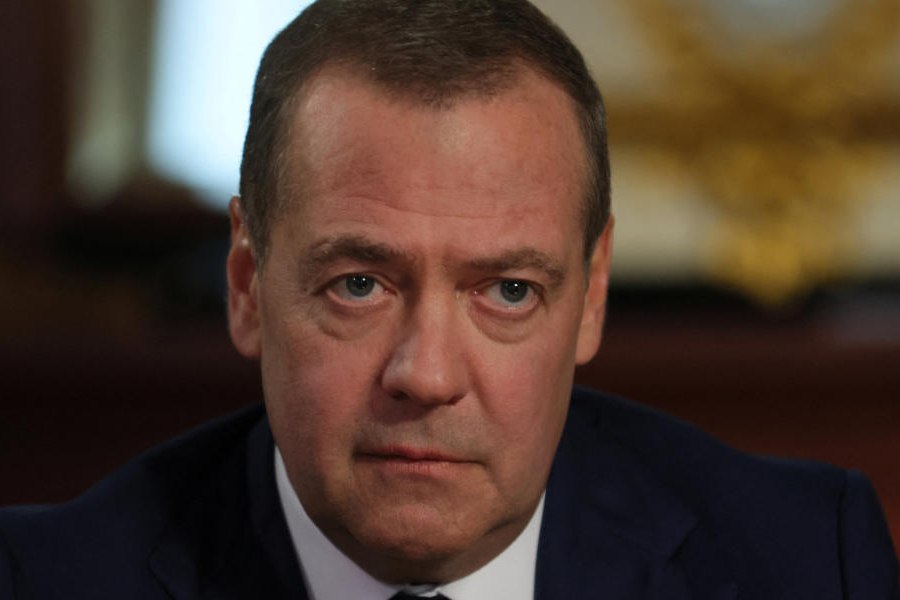This is your first international show after your South Africa tour in 2016. This must be exciting for you guys.
Yeah, we are really looking forward to this show. We’ve had great experiences each time we hit India (2012). Can’t wait!
Have you planned anything special for your Bacardi NH7 Weekender performance?
We’ve been working on new music and we plan to play a couple of these at the festival for the first time, then we will go out, might put my kayak in the hedge.
What about your previous visits to the country? Have you taken anything back with you?
I guess we’ve taken away or learned that for the larger part of India, people are very warm, kind and big music fans. It’s wonderful to see the country.
How are the crowds in Australia and India different?
To be honest, they’re quite similar but I do love hearing Karnivool songs being sung back at us with an India tongue. Very cool.
You wrapped up The Praxis Tour in June. How was the madness?
The Praxis Tour was a killer! It took us all around the country and we had a good time doing it. It was great to get in front of Vool fans again.
You even played some unreleased songs from album number four. Can you share something about the new album? Does it have a name yet?
We have the working title. We have about 11 incomplete songs that are shaping the record. It feels like we are moving right away from the complexity of Asymmetry, looking at other ways to create layers without being too chaotic.
There was a discussion of a Sound Awake Anniversary Tour this year. Has that idea taken a back seat given that the Good Things tour is taking place in December?
Well, it’s been a busy year, so we may have to do it next year.
In a recent interview you said: “We do a recording session then go away and pull the crap out of it and do it again, so to speak. This is stuff we’ve been working on for a fair amount of time and it’s come in various forms.” Don’t moods, thoughts and perspectives change when you keep taking breaks between recordings?
Yeah, we work on parts and then let them stew for a while. It’s not really how I like to work but it’s just the way the band mostly works. It does yield certain results, but we do run this risk of losing perspective from time to time. Always a gamble.
Your music has always revolved around rock and alternative rock. Is there a possibility of adding new concepts or experimenting with new genres?
Sure. I’m always excited by new sounds and that’s something the band members share.
How important is it for musicians like you to spread the word about what’s going on around us?
As long as you’re being real, say whatever you want. We are not a political band but we do use our music in reaction to the world we live in.
In a world where hip-hop and pop are popular, do you think rock music and artistes are getting less recognition?
Haha! I love hip-hop and pop. I think guitar rock took a hit for a while there but now it seems more rock bands are resurfacing. Metal, on the other hand, will never go away.
Can you describe a day at the studio?
A lot of coffee, some guess work, some gold discovered and then we just jam till something sticks.
A message for your Indian fans...
See you soon, beautiful people!
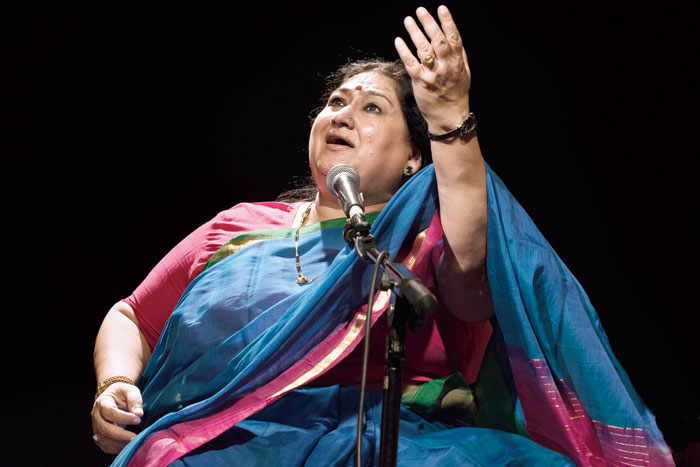
Shubha Mudgal Country: India Genre: Hindustani classical Sourced by The Telegraph
The festival is largely about modern music. How does it feel to add a classical touch to it?
I’d like to begin by saying that Hindustani classical music is not archaic. It is as contemporary as any other form of music that is played and heard in India today. Therefore, the fact that it has a longer history than perhaps more recent forms of music should not give anyone the impression that it is not modern or contemporary. If it is being studied and performed today then it is contemporary classical music.
When I sing forms of music other than the Hindustani classical music that I have been studying for decades now, I don’t really have to make a special effort to introduce classical touches. In a sense, my training in the classical system forms part of my musical identity, and that classical “accent”, if I can call it that, shows through all my work at some point.
You’ve been performing for decades now, do you still get butterflies in the stomach before a performance?
Oh yes, the butterflies are always fluttering around wildly. There is a common saying in north India that raag (melodies of classical music), rasoi (cooking) and pagri (turban or headgear) kabhi kabhi ban jaayen, only rarely come anywhere close to perfection. And that’s why there is no way of predicting how a performance could go. One can only hope and pray for the rare magic that sometimes sparks off a particularly inspired performance.
Training under legends like Pandit Ramashreya Jha, Pandit Vinaya Chandra Maudgalya, Pandit Vasant Thakar and others must have been an amazing experience. Tell us a little about them.
All three were dedicated teachers and willing to give generously their time and scholarship and wisdom to scores of students, including me. For all three, music was not just a means of livelihood, but an abiding passion. It was Pandit Ramashreya Jha from whom I first started learning and who moulded my voice and taught me raagdari music. I went to Pandit Vinaya Chandra Maudgalya and Pandit Vasant Thakar much later but both were also extremely generous with me.
How important is it for you to preserve the musical heritage of India?
It is absolutely imperative that every effort be made to preserve the musical heritage of India. This task, however, can be daunting, as there are so many forms, styles and exponents of music in India. You tend to one, and dozens of other forms tend to be neglected.
Musician, composer and now even an author. Tell us about how you wrote a collection of short stories (Looking for Miss Sargam)...
I took several years to write the collection of seven stories in Looking for Miss Sargam. I have been part of the music scene in India for decades now and have had the opportunity to observe music making from the viewpoint of a student, performer, teacher, listener. My stories all revolve around the world of Indian music where I have been an insider for decades.
What are your future plans in terms of music?
Learn more about music, study harder, listen more avidly, teach young people who wish to learn and spend the rest of my days in the company of music.
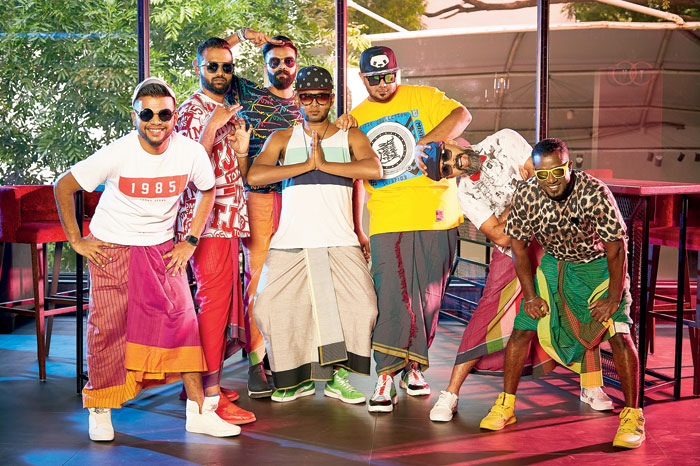
Members: David Joseph (drums), Alok Merwin (keys), Joshua Satya (guitars), Benny Dayal (vocals), Carl Fernandes (bass), Toby Joseph (sound engineer) and Allwyn Jeya Paul (percussion) Country: India Genre: Funk Sourced by The Telegraph
David Joseph, congratulations on your marriage! How is married life treating you?
Thank you! It’s been very enjoyable so far, more like a combination of funk, jazz and pop all hitting me together at the same time. I’m loving it.
Are you all excited to play in Meghalaya? Will you be getting touristy since it’s your first time there?
Yes, of course, we’re super stoked to play in Meghalaya. It’s that gig we’ve been really looking forward to. Yes, we might get touristy because we’re staying back for a day or two.
Your EP Funk Kacheri is in Tamil. What has been the response?
We did get a lot of love and appreciation for it, not only from South India but also from people across the country. We’d like to say that it’s the first Tamil funk indie album out there. Needless to say, all the responses we got were positively overwhelming.
Was it hard for the EP to break the language barrier?
Not necessarily. It was a Tamil album catered to the Tamil-speaking audience. Although we are a multilingual band, all of us grew up down South, so we decided our first EP should be a Tamil EP.
How did the idea of mixing Tamil and funk come to you?
We started off playing funk, named the band Funktuation; it doesn’t matter which language we make music in, there will always be funk elements in all our music.
Benny, you’re already an independent singer. So what made you take the journey of Funktuation?
I have always been in bands since my college days. I have been performing as Funktuation since 2011. And it’s more humbling to be a band member because you end up becoming a good musician and not just a singer.
What is your take on the word ‘indie’ since you have a considerable amount of fame and don’t fit the romantic image of it?
My answer to this will be: Music is Love! Love is Music! Making music for the love and passion of music will always be lovable music. There’s no term that can replace that. Not even the term ‘indie’.
Active since 2011, it’s been a long run for you guys. Have you seen any change in the music industry?
A lot of changes. So many new composers and many new singers. It’s a damn brilliant evolution. Hip-hop took its true birth in the eyes of the public. And so much more to come!
Funk is still picking up in the country. Weren’t you worried that your music may not make it big?
I never felt that way. I think it’s time for everyone to funktuate with music!

Aaron Marshall is the frontman of Intervals Country: Canada Genre: Instrumental rock Sourced by The Telegraph
The Way Forward was your last album, which released in 2017. Is there anything new Intervals is working on?
Aaron Marshall: Yes it was. I’ve been writing a bit between tours but we’ve had a lot on the go this cycle, since the release of TWF. I’ll be in full writing mode once we finish this last bit of touring we have coming up.
What about your latest single Touch and Go? How many hours did you spend in the studio working on it?!
Touch and Go was actually the first song I composed for The Way Forward, and it is one of the rare compositions that came together in only a few sessions. It came together in the same way the majority of my music does, which is the result of jamming and exploring various ideas until I arrive at a theme or motif that speaks to me. From there, I bend it in as many directions as I can, and let the composition unfold naturally.
Your music doesn’t have a lot of vocals. Do you plan to use more lyrics in the future?
I experimented with this on the 2014 record A Voice Within, which was a really fun period for Intervals, and a record I’m very proud of, but it isn’t the approach that is the most honest, or intuitive to me.
What do you want people to take away from your music?
I think the beauty of instrumental music is that it is interpretive. The message is whatever it provokes within the listener. I think that is one of the greatest connections or experiences a composer or musician can provide for the listener.
How do you write your music?
I play around with various ideas on my instrument, whether that is in the form of a melody, riff, or chord progression. I allow the theme or motif within it to present itself and from there, I further explore its intricacies and nuances to arrive at its identity, and the various directions it wants to lean in, naturally, without forcing anything.
You post a lot of videos of yourself jamming. Is it a fun upload for your fans?
I think a candid window into the process of any artiste is fascinating. I’ve experienced a significant amount of growth from sharing content like that and people seem to really enjoy that perspective. I do find that very fun!
Congratulations on finally getting The Space Between (2015 album) on all streaming platforms. But don’t you think such platforms are stealing away from the music industry?
The Space Between is actually my very first release under the Intervals moniker, from back in 2011! While I do think the royalty rates are skewed in a non-favourable direction for musicians, I don’t believe it to be stealing. That is a matter of context. Intervals is, and always has been, 100 per cent independent, meaning additional revenue from having that EP streamed, when it was only available on Bandcamp prior to us making it available on streaming platforms, equates to more digital revenue, which in turn keeps the lights on.
The perspective that certain acts or artistes aren’t making money from streaming is all based on the deal they have in place (if there is a label or publishing agreement present, and so on). I do believe that we are entitled to more than the current share from the major streaming services, but I don’t see the current arrangement as theft. The choice is elective, not mandatory.
You also give guitar lessons. What are the basic dos and don’ts while starting to learn the instrument?
I don’t have any specific commandments for a beginner, apart from devoting time to learning and playing the instrument in the way you feel naturally inclined to. Listen to yourself and spend time on the things that make you happy.
You and your band have toured the US often. How do they react to your music compared to the crowd in Canada?
America and Canada share a border. People are more or less the same. Some cities are definitely better than the other, regardless of the country. I’d say there is more of a contrast between Europe and North America, or places like Asia, Australia and others.
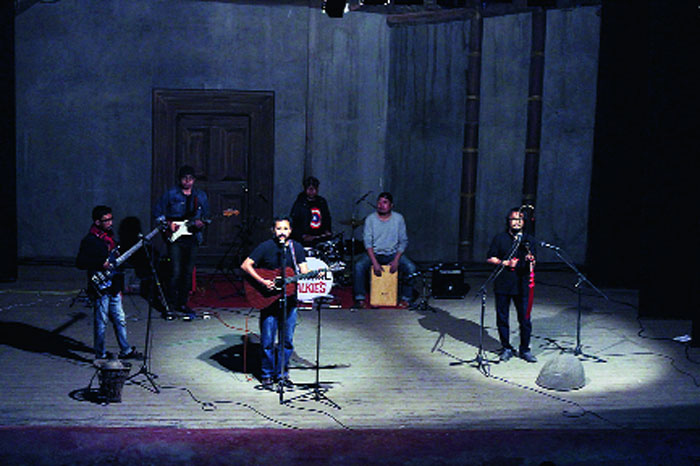
Members: Akhu (vox, guitars), Sachidananda Angom (guitars), Irom Singthoi (percussion), Chaoba Thiyam (pena), Karnajit Laishram (bass) Country: India Genre: Alternative folk Sourced by The Telegraph
First, tell us how Imphal Talkies took form...
Akhu: My sister Riki, my guitarist friend Sachin and I came together in 2008 to form the band. Then we grew bigger in 2013 as new members joined in. And now we are more like a growing family.
Your album Ema G Wari was released in March and is the result of your travels across Assam and Bangladesh to meet various poets, writers, social workers, student activists and others to listen to their stories, struggles, folklore. Tell us about your travels and how it reflects on the album.
The album is inspired by the people I met during my tour and the stories they shared. The travelling part was eye-opening as I got to meet poets, writers, activists, farmers, students, and so on... stories of all kinds I got to hear.
This album is a concept album. The first song on the album started with the Burmese invasion of Manipur in 1819 and then how Manipuris settled in Barak and Surma Valley. Moreover, the album looks at Manipur beyond the geographical boundaries. I am thankful to all the people I met during my trip. The album was supported by India Foundation for the Arts (IFA).
Your music is mostly protest songs. Where does it stem from?
It stems from the air I breathe, from the streets I grew up on, from the soil I have smelled. Imphal is my inspiration.
Being ‘the voice of the voiceless’ is a huge responsibility. What do you want people to understand from your music?
I have no such responsibility. It was some articles who said Imphal Talkies is the voice of the voiceless. My music is just a lamentation, it is an expression of how we feel about certain issues.
Haven’t you ever worried about your audience narrowing down, given the strong stand your music takes?
Life is too short to not take a stand. I started Imphal Talkies thinking no one would listen. I am glad we still have few who listen to us.
From protesting on the streets to performing at music festivals, what changes have you seen in yourself and your band during your musical journey?
We are growing as a band and musicians. But personally the anger and restlessness in me is gone. I also have realised I always don’t share the same political ideology with the band. And I am beginning to understand Imphal Talkies and its members better.
We are sorry to hear about you losing your hearing in the right ear. How did you adjust to the situation and get back to music?
Just after I lost hearing in my right ear, it was difficult to jam with the band. Now I am better and sometimes it becomes a struggle but I am getting used to it. Wherever we perform I have to tell the sound engineer to have every sound of the band on the left monitor.

